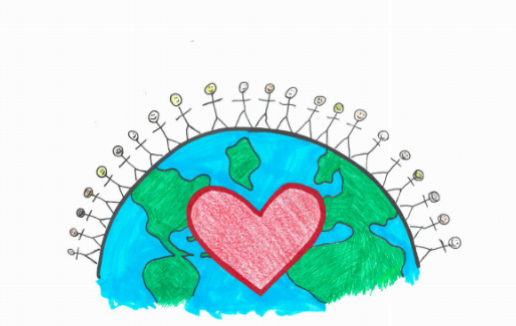At the “Hate Has No Place Here” assembly, retired Prosecutor David D’Amico taught us about the serious repercussions of hate. He established that ignorance is the basis of hatred, and that as students, we must educate each other to prevent the spread of ignorance, which is lack of knowledge, not ill-will. An act of ignorance is surrounding yourself with others with the same bias as you, and D’Amico’s presentation reminded me of how unfortunately prevalent that is in high schools across America.
Here at RHS, one of the best public schools in New Jersey, the history program has done much to alleviate my ignorance about social matters. However, history class cannot solely educate the student body. Too often, I hear my fellow students passionately preaching claims without the facts to back it up. It is easy for cliques to become echo chambers of ideology in which everyone conforms to the same values.
We must stop this cycle at RHS by opening up to outside opinions.
My way of hearing opposing perspectives has been in Model United Nations and the debate team. Both of these programs force participants to put themselves in another others’ shoes, allowing them to question their previous opinions on the issues. There are many clubs outside of these two that serve the same purpose, only for different people.
I joined the RHS Debate Team freshman year, and it opened my eyes to national and worldwide issues for the first time. I was never particularly interested in the news, so I was ignorant about almost all topics we debated. Every month’s topic was a revelation; I found the world outside our community is incredibly complex. In debate, you build a case for and against a resolution, which is essentially a suggestion for a change in policy. At tournaments, a coin toss determines the side the debaters have to defend or negate. Thus, despite my personal preferences, I need to build the best case possible for both sides of the argument. For the 30 minutes a round takes, I truly believe in my case, defending it tooth and nail with each speech and cross. I have never left a tournament without questioning my beliefs — an aspect I find extremely valuable.
Maryam Kourouma, Alex Kenney, and I started the Model UN club this year at RHS, and similar to debate, it forces delegates to truly embody the country or person who they represent. Diplomacy as seen through MUN committees is much more of an accurate depiction of real-life debate. As early as your fellow delegates’ opening statements, a good delegate is searching for allies. The whole point of Model UN is to pass resolutions, or compromises, that are in the best interest of the world, but more importantly, your country’s agenda. The best committees are full of well-researched delegates who find commonalities with their delegates and use those connections to concede mildly. It doesn’t take “becoming the enemy” to be objective about an issue. All it takes is acknowledgement and understanding of other people’s motivations.
I am by no means a winner in either of these clubs. But that is not why I do them — they give me clarity about issues all around the world that I would have never actively sought out on my own. The new perspectives that I was exposed to in these clubs transformed me into a more informed and honestly better person. However, you do not need to join these teams to open your mind to new topics. I only wish that you ask yourself where your beliefs come from. If you do a little research or simply talk to someone outside your clique, you may just change your mind about something.
D’Amico said that none of us are inherently hateful, so let’s end the pyramid of hate right at the base.
Alexandra Jerdee
staff writer
Graphic: Lia Vaynshteyn

